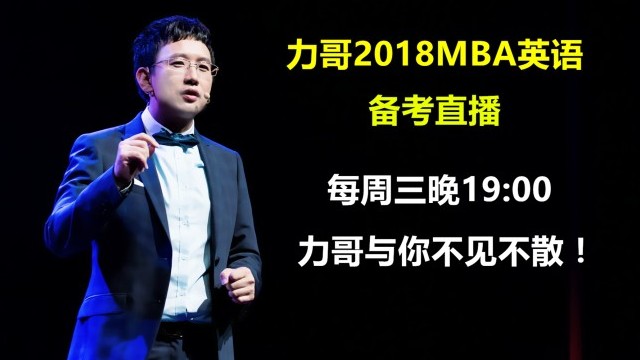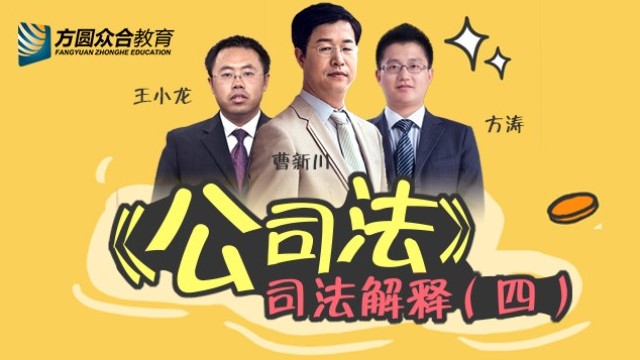2006年全国大学生英语竞赛初赛听力原文(A级)
(Script for Listening Comprehension)
Section A
Directions: In this section, you will hear 6 short conversations. At the end of each conversation, a question will be asked about what was said. Both the conversation and the question will be read only once. After each question, there will be a pause. During the pause, you must read the four choices marked A, B, C and D, and decide which is the best answer. Then mark the corresponding letter on the Answer Sheet with a single line through the centre.
1. Man: Was there anything valuable in the bag that was stolen, Madam?
Woman: Yes, it had my purse in it and my keys.
Man: Anything else?
Woman: Well, luckily I was wearing my glasses, so no, nothing else.
Q: What was in the woman's bag?
2. Man: I'm terribly sorry, mum - I've just broken something.
Woman: Oh dear - what was it?
Man: Well, I got up too quickly from the table to answer the phone and knocked one of your plates on to the floor - at least, it wasn't your new lamp!
Woman: Oh dear - I thought I heard a crash.
Q: What was broken?
3. Man: Have you seen my old shoes? I thought they were under the chair by the television.
Woman: Not any more! They're by the door with the other rubbish. I've been tidying the flat.
Q: Where are the man's shoes?
4. Boy: Mum, have we got any fruit to take on the picnic? I thought there were some oranges and bananas.
Mother: Here are the bananas. Let's take them. Oh...The oranges have all gone. What about taking some grapes or apples as well?
Boy: OK, let's take the grapes. That'll be enough.
Q: What fruit will they take ?
5. Man: Excuse me - what time does this train leave?
Woman: This train leaves for Paris at five to three.
Man: Paris? Isn't it the Rome train?
Woman: No - that goes at twenty five past three.
Q: What time does the train to Rome leave?
6. Man: Are you and Sarah going straight to the restaurant from work tonight?
Woman: Actually, I'm leaving work early because I need to do some shopping in the market, and after that we're going to play tennis at the sports centre before we go to the restaurant.
Q: Where will the woman go first after work?
Section B
Directions: In this section, you will hear one long conversation. At the end of the conversation, 4 questions will be asked about what was said. You'll hear both the conversation and the questions only once. After each question, there will be a pause. During the pause, you must read the four choices marked A, B, C and D, and decide which is the best answer. Then mark the corresponding letter on the Answer Sheet with a single line through the centre.
Jan: Hi, Steve!
Steve: Hi, Jan. I'm planning to go to London by train. Do you want to come with me?
Jan: But it'd be cheaper by bus.
Steve: I've got a student travel card. You can get cheap train tickets with it.
Jan: That sounds good. How much does it cost?
Steve: A card for six months is sixteen pounds.
Jan: So how do I get one?
Steve: You need two photographs - one for the card and one for the form.
Jan: There's a photo machine in the post office. It gives you four photos for three pounds.
Steve: So does the one in the library. But I went to a photographer's studio. It was cheaper.
Jan: I don't have to show my passport or my driving licence, do I ?
Steve: No, Jan, you only need a letter from your college.
Jan: OK, I'll ask my teacher for one.
Steve: And then you take everything to the tourist office and ask the travel agent.
Jan: Great, next time you go to London, I'll coming too!
Questions 7 to 10 are based on the long conversation you have just heard.
7. How much is a six-month travel card?
8. How many photos will Jan need to get a travel card?
9. Where are the photos much cheaper?
10. As well as the photos, what must Jan take with her for the travel card?
Section C
Directions: In this section, you will hear 10 short pieces of news from BBC or VOA. After each news item and question, there will be a pause. During the pause, you must read the three choices marked A, B and C, and decide which is the best answer. Then mark the corresponding letter on the Answer Sheet with a single line through the centre.
11. The Amazon is a lifeline for everyone in the river basin, from businessmen in the big city of Manaus to indigenous tribes in remote settlements. When water levels fall, the biggest effect is on transport - ferries and barges are the only way of moving goods and people around an area that spans about half the South American continent. In the last few weeks, the river and its tributaries have become increasingly difficult to navigate, and vital supplies of food, medicine and fuel are now struggling to get through. In an example of the risks, sixteen people were killed last Friday in a ferry accident which the captain blamed on difficult river conditions.
Question: How many people were killed last Friday in the ferry accident?
12. President Bush has proposed to increase the study of foreign languages in American schools. The new plan is called the National Security Language Initiative. It will involve the departments of State, Education and Defense, and the director of National Intelligence. The plan calls for teaching foreign languages to more children, as early as the age of four. It also aims to increase foreign language instruction in college and graduate school. The hope is to bring more foreign language speakers into government service.
Question: Why does Bush propose to expand foreign language teaching in American schools?
13. Jerusalem's Hadassah Hospital says the tracheotomy took less than an hour and was successful. Doctors cut a small hole in Mr. Sharon's neck and inserted a tube into his windpipe. The aim is to wean him from a respirator which has helped him breathe since a massive stroke and cerebral hemorrhage early this month. Medical experts say the tracheotomy is another bad sign for the 77-year-old prime minister.
Question: How long did the tracheotomy last?
14. Fathers for Justice is a small but vocal group of men who campaign in Britain for fathers to be given greater rights of access to children after divorces. Its founder confirmed that the police had told activists to keep away from Mr Blair's home in Downing Street. It follows claims that some campaigners had planned to kidnap five-year old Leo Blair and hold him for a short time to get publicity for their cause.
Question: Why did some members of “Fathers for Justice” want to hold Mr Blair's youngest son?
15. Falling ticket prices and rising incomes are leading to rapid growth in global air travel. According to the British government, the number of British air passengers, for example, will more than double in the next quarter of a century. Increases of such an order would mean much more aviation fuel being burned and aviation fuel may be more harmful to the environment than other fuels because the resulting smoke is emitted at high altitudes.
Question: Why is there rapid growth in global air travel in the UK?
16. The Institute of International Education, based in New York, recently published its yearly report, Open Doors Two Thousand Five. The report says the number of foreign students decreased by about one percent during the school year that began last fall. India sent the most students, more than eighty thousand. That was a one percent increase from the year before. China sent the next highest number, more than sixty two thousand. That was also a one percent increase. South Korea was third, with more than fifty-three thousand students, up two percent. Japan was fourth, with more than forty-two thousand students, an increase of three percent.
Question: How many Chinese students went to study in the U.S.A. in 2005?
17. Joaquim Chanque May does not remember facing such daunting hurdles when he arrived to Barcelona, as a student from Equatorial Guinea 30 years ago. After completing his university studies, Mr. Chanque May opted to stay on, because he opposed his country's government. Now 57 years old, Mr. Chanque May owns a small business and has Spanish citizenship. But he says he and his family are not completely welcome in their adopted country.
Question: How many years has Joaquim Chanque May been living in Spain?
18. As Secretary for the Louisiana Department of Health and Hospitals, Dr. Fred Cerise has had little time to rest since Hurricane Katrina and the catastophic flooding that followed. Dr.Cerise spoke with VOA in the state capital at Baton Rouge while a helicopter waited outside, ready to take him on an inspection tour over a devastated New Orleans. “We actually have a team, a large team, here from the Center for Disease Control in Atlanta that is coming down to help us with our environmental assessment. Even though the water may be running, you have had stagnant water. It can be contaminated.”
Question: Where is the team from to help New Orleans people with the environmental assessment?
19. Asia-Pacific ministers also drafted another statement for action on wide-ranging issues that affect or threaten global trade. They are vowing to reduce violations of intellectual property rights - such as movie privacy - to make the oil markets more transparent and to act collectively to fight terrorism and prevent a human epidemic of bird flu.
Question: What are Asia-Pacific ministers not vowing to do?
20. More than seven thousand activists outside the meeting hall protested that the WTO's trade rules hurt workers and farmers. The activists began the week declaring they wanted to derail the talks and prevent the delegates from reaching any agreement. Despite days of protests, including a brief riot near the conference center on Saturday, the activists did little to interfere with the talks.
Question: Who did the WTO's trade rules hurt according to the activists?
Section D
Directions:In this section, you will hear 2 passages. At the end of each passage, you will hear 4 or 6 questions. After you hear a question, you must choose the best answer from the four choices marked A, B, C and D. Then mark the corresponding letter on the Answer Sheet with a single line through the centre.
Passage One
I know a man who loves food. In fact he can eat more food than anyone else I know. His name is Bill, and he is very fat. Bill's problem is that he likes to eat a lot of food, but he
doesn't like to work.
One morning Bill was out in the country when he met a farmer.
“Are you looking for work?” asked the farmer.
“Yes,” said Bill, because he was very hungry and had no money to buy food.
“All right,” said the farmer, “you can come and work for me.”
“Just a minute,” said Bill. “First, I must have a good lunch.”
“Well,” said the farmer, “what would you like?”
“Vegetable soup”, said Bill, “to start with.”
“Anything else?” asked the farmer.
“Yes, I'd like a big steak and green beans and lots of potatoes,” Bill went on hungrily.
“Is that all?” asked the farmer.
“Almost,” said Bill, “I'd like to finish with a cup of coffee and a big piece of cake.”
“Listen,” said the farmer, “you don't need a job - you need a restaurant!”
Questions 21 to 24 are based on the psssage you have just heard.
21. What does Bill look like?
22. Who did Bill meet in the country one day?
23. What did Bill want to do first?
24. What did Bill want after this?
Passage Two
You will hear part of a local radio programme in which someone is talking about a shopping centre.
Presenter: Thank you, David. To finish today's programme, I want to tell you about the Waterside Shopping Centre, near Northport, which I visited last week. It has something for everyone and I would recommend it for a day out. It's taken three years to build and finally opened three weeks ago, two months later than planned.
Firstly, getting there; there are organized coach trips from most towns in the area but they leave early and come home very late, so I drove. There are 12,000 free parking spaces, so parking is no problem. You can also get there by train, but the station is 15 minutes from Waterside by bus, and the buses are really crowded, so you sometimes have a long wait.
One thing to remember is that the shops don't open till 10.00 in the morning except on Saturday when they open at 9.00. So don't get there too early on a weekday. They close at 8 o'clock every day except Friday when they're open until 9 pm.
The shopping centre is arranged on three levels. You'll find all your favourites here. In fact if you want to buy a pair of shoes there are 15 different shops to choose from on levels one and two. When you run out of money there are seven different banks, but collect your money before you get to the third level as there aren't any banks up there. On that level, however, there are several restaurants, as well as a cinema with seven screens. And don't get lost like I did, go to the information desk on the first level and get a map.
Before you go back to your car or the bus - and in fact it might be better to do this before you go shopping and have too much to carry - go and see the lake. Take a walk or have a go at fishing, sailing or windsurfing if you have time. Or you can rest your tired feet and watch the birds and ducks, but you are asked not to feed them.
Although I had a good day, I would complain about one thing, but not the usual thing - the service in the shops was good and I had an excellent lunch in a café. No, the silly thing was that everywhere was quite clean but people were dropping their fastfood boxes and empty drink cans on the ground because there wasn't anywhere else to throw them. Apart from that, I would recommend it. And so that's all for today's programme...
Questions 25 to 30 are based on the psssage you have just heard.
25. When was the shopping center opened?
26. What is the best way of traveling to Waterside?
27. During which period are the shops open on Fridays?
28. What can you do on the third level?
29. Apart from shopping, what else can you do at Waterside?
30. What did the speaker complain about?











